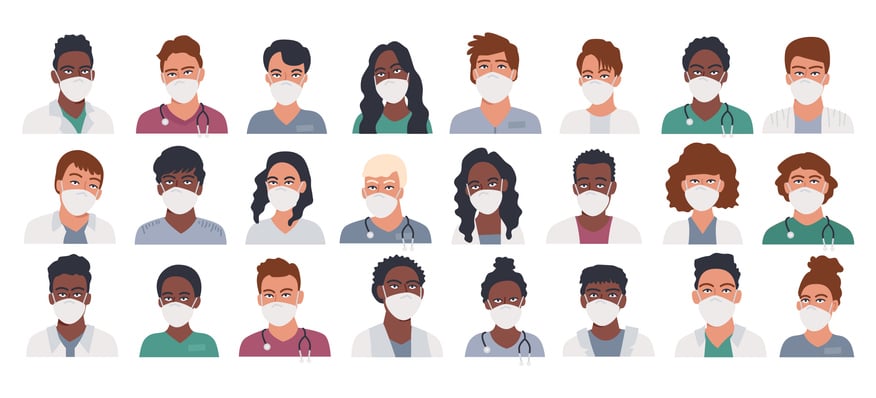 A key tool to reducing health disparities in patient care involves diversifying the Nursing field. The Nursing population should be as diverse as the patient population they serve.
A key tool to reducing health disparities in patient care involves diversifying the Nursing field. The Nursing population should be as diverse as the patient population they serve.
According to research, the majority of Nurses in the US are White/Caucasian at 73.3% and only 7.8% are African American.
Jennifer Coleman, a Samford University Professor and Pediatric Nurse, is one of several National Black Nurses Association (NBNA) members working toward increasing diversity in Nursing. To help accomplish this goal, the association created a program called NBNA Mini Nurse Academies, which encourages elementary school students of color to consider a career in Nursing.
"The purpose of this innovative program is to increase student awareness of Nursing as a career option and to provide students with knowledge and skills related to professional Nursing practice," said UAB School of Nursing Associate Professor Loretta Lee, PhD, CRNP, FNP-BC, CNE. "In these academies, students in third through sixth grades from school districts where there are large communities of color will be introduced to the Nursing profession by professional Nurses who share similar backgrounds and lived experiences."
The NBNA represents approximately 200,000 African American Nurses from the USA, Canada, Eastern Caribbean, and Africa, with 115 chartered chapters nationwide. They recognize the need to increase diversity within the Nursing field and are being proactive to do something about it.
The Direct Relief’s Fund for Health Equity awarded the NBNA with a $248,000 grant for the Mini Nurse Academy. The Fund was created to increase access to health care and improve health outcomes for marginalized communities.
With this grant more mini academies will be able to offer learning modules that include class discussions, guest presentations, interactive hands-on activities and ongoing mentorship. It will also address social determinants of health by educating students about healthy lifestyles, according to the, University of Alabama at Birmingham.
In a Direct Relief article Lee said, “Students in our communities probably don’t see people who look like them very often as Nurses. I believe you have to role model, meaning if a Black student or Brown student sees a Registered Nurse, has interactions with a Registered Nurse throughout their youth, then they are more apt to become a Registered Nurse if they can get information, if they can know what that profession is about. And they’re more apt to want to emulate what they see.”
New programs will begin in the Fall of 2022 in Florida, Louisiana, Missouri, Illinois, Connecticut, Oregon, and South Carolina.


 The National Commission to Address Racism in Nursing
The National Commission to Address Racism in Nursing 
 Men become Nurses for the same reason women do, to take care of people. And even though Male Nurses are becoming more common, they still face constant stereotyping on the job.
Men become Nurses for the same reason women do, to take care of people. And even though Male Nurses are becoming more common, they still face constant stereotyping on the job. There are large disparities in mental healthcare across races and ethnicities in the U.S. Many factors contribute to the poor mental health outcomes of minority populations. Such as:
There are large disparities in mental healthcare across races and ethnicities in the U.S. Many factors contribute to the poor mental health outcomes of minority populations. Such as: Nurses have the first-hand experience needed to advocate for their patients, colleagues, and themselves. They can influence change in their workplace, communities, Nursing organizations, educational institutions, and with policymakers.
Nurses have the first-hand experience needed to advocate for their patients, colleagues, and themselves. They can influence change in their workplace, communities, Nursing organizations, educational institutions, and with policymakers.



